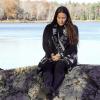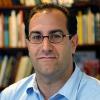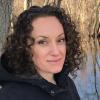GCSE and the Land Peace Foundation led a second learning series, Research and Land Stewardship Collaborations with Indigenous Peoples, October 27–December8, 2021. The sessions built on what we learned during the inaugural series, Indigenous Knowledge & Western Science: Collaboration, Relationship, and Climate Solutions. Learn more about our collaborative work.
During these interactive sessions, participants learned from case studies, heard first-hand accounts from Indigenous and non-Indigenous collaborators, and discussed practical protocols for engagement and collaboration.
Series Details
-
Group Discussion: Case Studies of Collaboration and Relationship-Building
- October 27, 2021, 12:30–2:00 pm ET
- In the first session, we discussed a range of issues reflected in the pre-session reading. Topics included, but were not limited to: 1. How to build trust, 2. How to share power, 3. How to manage and address ‘data’ sharing related to indigenous knowledges. 4. How to value and integrate different knowledge traditions, and 5. How to communicate your collective work with Indigenous peoples, and more.
- Watch the session recording.
-
Panel Discussion: Indigenous and Non-Indigenous Collaboration Successes and Challenges
- November 17, 2021, 12:30–2:00 pm ET
- In Session 2 we were joined by a panel of experts to address the subject matter discussed in Session 1. This panel consisted of authors and experiences in the field and reflected the local, national, and international frameworks presented in the materials for session 1. Panelists provided valuable on-the-ground insights on how to engage this work from three perspectives: university, government agency, and NGO. Panel members discussed the best practices and frameworks for building research and land stewardship collaborations with Indigenous peoples.
- Watch the session recording.
-
Discussion: Synthesis & Integration
- December 8, 2021, 12:30–2:00 pm ET
- In session 3, we came back together to share lessons learned and tools identified, answer remaining questions on the course materials, and discuss the future collaborations and frameworks that participants may be engaging or contemplating. A session recording is not available.

Series Facilitator- Sherri Mitchell, Indigenous Rights Attorney and Founding Director of The Land Peace Foundation

Series Facilitator- Darren Ranco, Associate Professor of Anthropology, Chair of Native American Programs and Research, University of Maine

Series Host- Laura Weiland, The Land Peace Foundation
Session 2 Panelists
- Kyle Whyte, Potawatomi Nation, Professor of Environment and Sustainability at the University of Michigan, White House Environmental Justice Advisory Council
- Daniel R. Wildcat, Muscogee Nation of Oklahoma, Director of the Haskell Environmental Research Studies (HERS) Center, Indigenous & American Indian Studies Program at Haskell Indian Nations University in Lawrence, Kansas.
- Angie Reed, Water Resources Planner for Penobscot Nation
- Jan Paul, Water Quality Field/Lab Technician for the Water Resources Program in the Penobscot Nation
- Bridie McGreavy, Associate Professor of Environmental Communication in the Department of Communication and Journalism at the University of Maine.
- Margarita Mora, Managing Director of Partnerships at Nia Tero
- Paul Roughan, Sky Islands Initiative Team Lead at Nia Tero
Allied Organizations